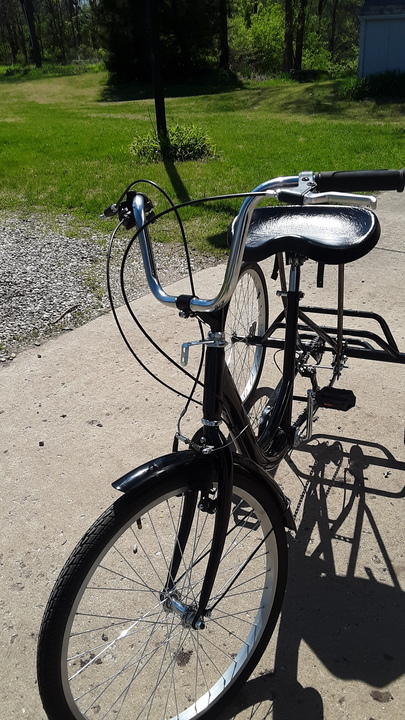Geo-TH,In
Well-known Member
The gas hose on my generator cracked and leaked all the gas out of the tank.
This is what happens when an empty carb sits in an unheated pole barn. I think the condensation caused the rust. The dired gas caused the needle jet on the float to stick too.
I bought a gallon of food grade, most concentrated Phosphoric acid Amazon sells.
I mixed one part of Phosphoric acid to 3 parts of water and let it soak for 2 days. Wired brushed off the metal ring which I found along the road. The let it soak another day.
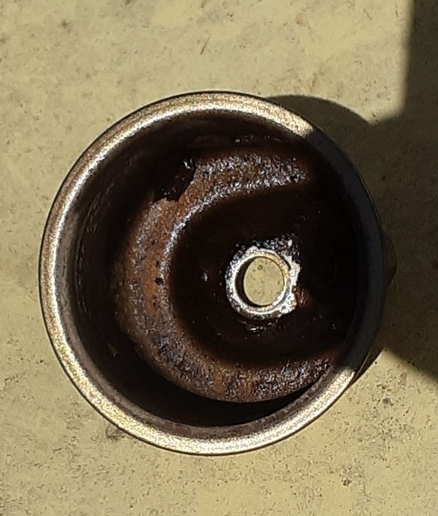
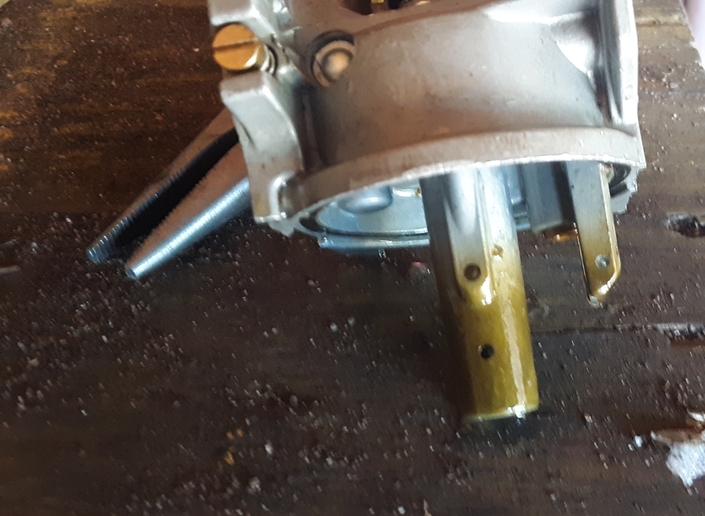
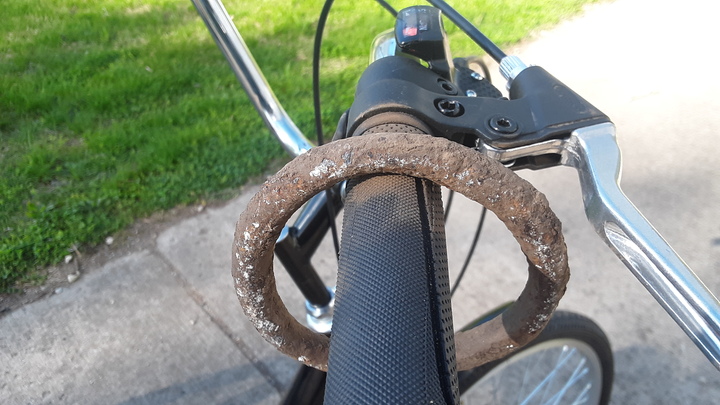
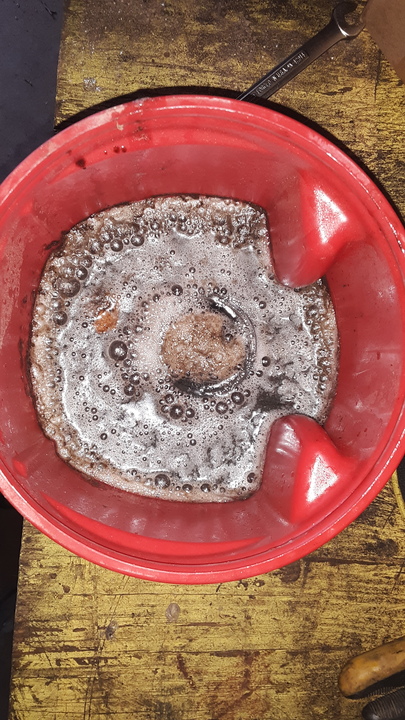
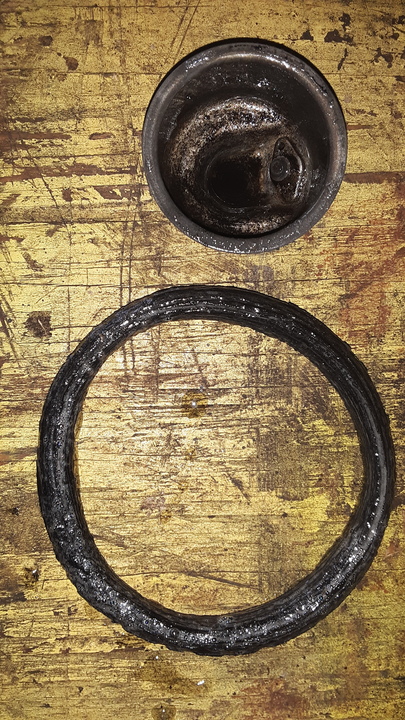
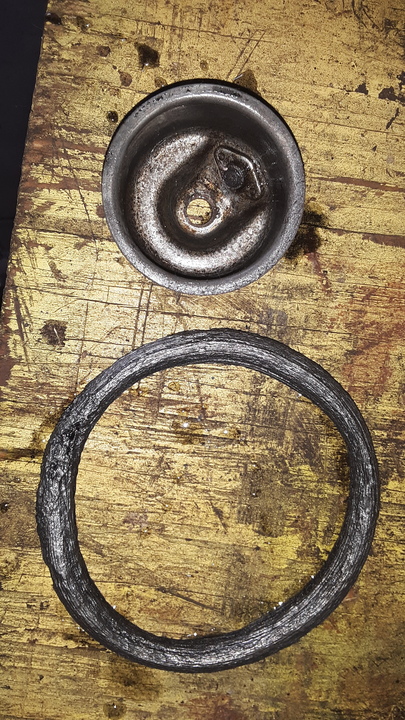
The metal ring will be a cup holder on my new bike.
The final pic of the cup holder later after the rusty metal I welded to the ring soaks.
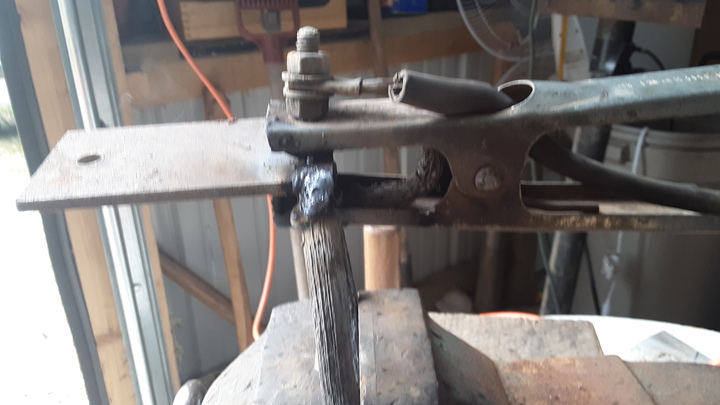
You decide if Phosphoric acid does a good job of converting Rust, iron oxide, back to iron.
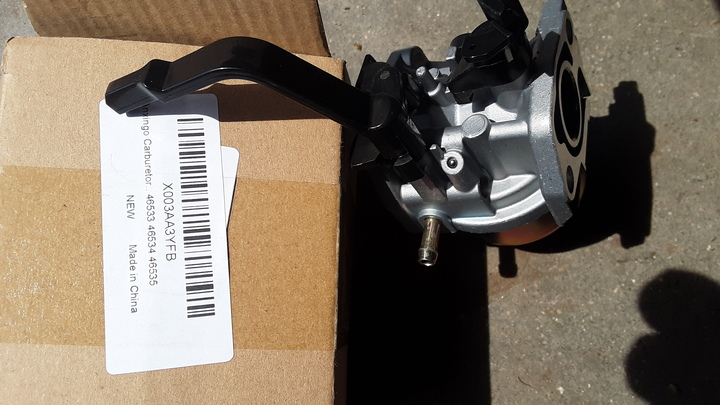
I bought a new carb from Amazon for $13.
Look at the second pic, this carb was China aftermarket carb.
The gold screw is the fuel adj screw.
The generator was made in China and no adjustment on the California compliant carb. Grr.
I think after I clean up the carb in pictures, it will be good after the rust is gone..
Would you call Phosphoric acid a success?
Have you used Phosphoric acid to clean gas tanks or Carbs?
This is what happens when an empty carb sits in an unheated pole barn. I think the condensation caused the rust. The dired gas caused the needle jet on the float to stick too.
I bought a gallon of food grade, most concentrated Phosphoric acid Amazon sells.
I mixed one part of Phosphoric acid to 3 parts of water and let it soak for 2 days. Wired brushed off the metal ring which I found along the road. The let it soak another day.






The metal ring will be a cup holder on my new bike.
The final pic of the cup holder later after the rusty metal I welded to the ring soaks.

You decide if Phosphoric acid does a good job of converting Rust, iron oxide, back to iron.

I bought a new carb from Amazon for $13.
Look at the second pic, this carb was China aftermarket carb.
The gold screw is the fuel adj screw.
The generator was made in China and no adjustment on the California compliant carb. Grr.
I think after I clean up the carb in pictures, it will be good after the rust is gone..
Would you call Phosphoric acid a success?
Have you used Phosphoric acid to clean gas tanks or Carbs?


